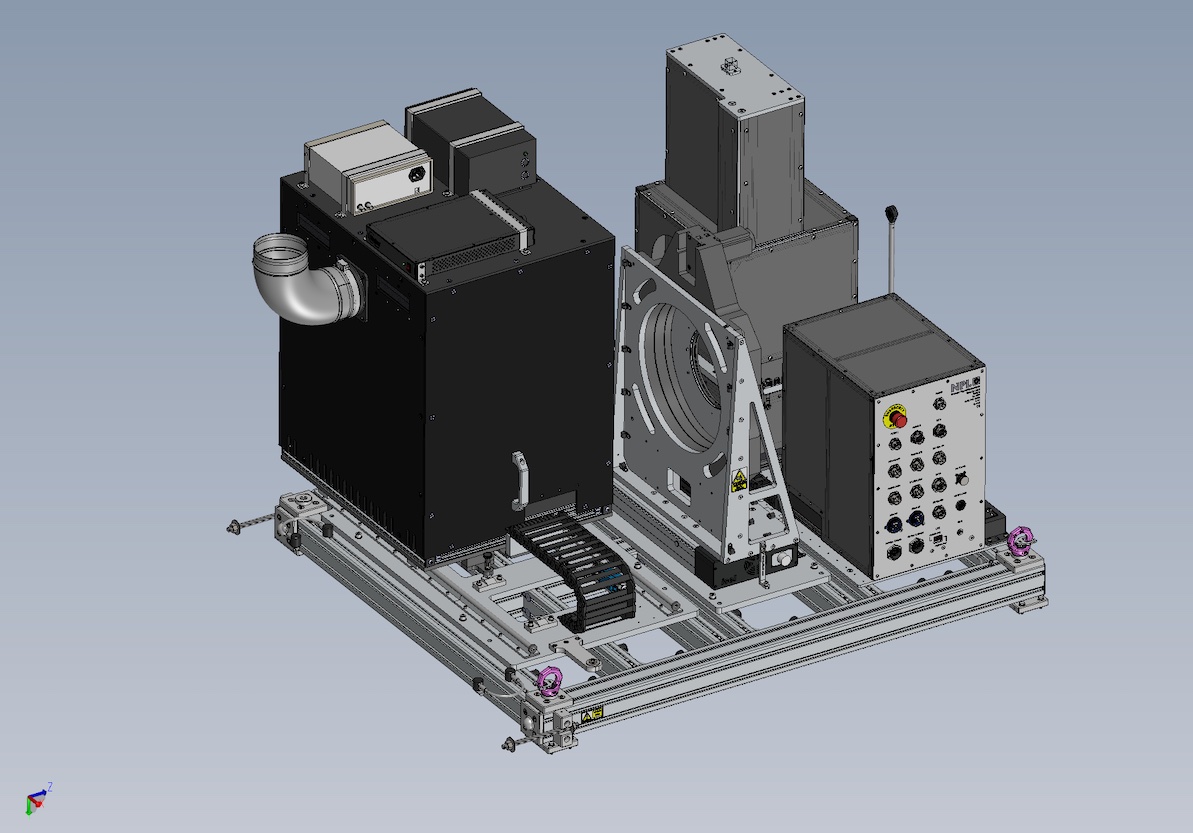Channels
Special Offers & Promotions
The National Physical Laboratory (NPL) and Science and Technology Facilities Council’s RAL Space to deliver state-of-the-art facility for small satellites

Scientists and engineers at the National Physical Laboratory (NPL)are working with colleagues at the Science and Technology Facilities Council’s (STFC) RAL Space to deliver a small satellite calibration facility.
The new facility is being designed, manufactured and tested at NPL’s Teddington site in south-west London and will be located at Harwell Campus. It will draw on expertise from NPL’s STAR-cc-OGSE facility, which provides innovative solutions for calibrating scientific instruments on satellites before their launch into space.
It will provide a state-of-the-art solution to instrument calibration and characterisation, ensuring the required performance for both full satellite payloads and components is achieved.
The facility is intended for use by small satellite providers at short notice to perform essential pre-flight calibration and characterisation tasks for individual satellites. This will ensure the end-to-end performance of a satellite instrument is understood before it is launched, which is a critical task for any space mission. By checking that all on-board instruments are correctly calibrated before launch, the new facility ensures that the satellite will collect reliable, accurate and trusted earth observation (EO) information that can be used by governments to make informed decisions on policies relating to climate change and emission reduction.
The new facility forms part of the UK Government’s Department for Science, Innovation and Technology’s £200M ‘Earth Observation Investment Package’ that was launched last year to drive innovation in the UK EO sector. It will build on NPL’s and RAL Space’s existing programmes that support the UK’s thriving EO sector, with a particular focus on how EO technology and data can help solve global challenges such as climate change. These programmes also aim to create attractive opportunities to encourage individuals to develop their skills and build their careers here, and explore exciting new international collaborations.
The facility will support the government’s aim for the UK to become the global home for trusted climate and earth information services.
UK Minister of State at the new Department for Science, Innovation and Technology, George Freeman MP said: “Small satellite companies often struggle to find affordable and accessible calibration facilities, limiting the prospect of innovative new companies thriving in the UK’s fast growing space sector now worth £17.5bn.
“This new facility will provide a much-needed service to level the playing field for these companies, while driving economic growth in the UK. Such companies are playing an increasingly important role in monitoring our planet and collecting vital data on climate change, emissions and sustainable development.
“By ensuring that these satellites are properly calibrated, we can be confident that the data they collect is accurate and reliable – helping us to make better decisions about how to protect our planet, through means such as monitoring Earth’s temperature levels. This is the UK delivering on our commitment to support the UK Earth Observation sector.”
The ‘new space’ sector is developing small satellite instruments that operate in a range of wavelengths for various Earth Observation (EO) applications. Calibration of these sensors is essential in ensuring the usefulness of data collected by these missions.
Large satellite missions developed under international space agency programmes may invest in bespoke calibration equipment solutions which would be a significant barrier to smaller private companies. These companies typically do not have the capability, budgets or expertise to individually develop their own pre-launch calibration testing facilities and programs. However, this facility, supported by experts from NPL and RAL Space, will provide state-of-the-art calibration to these companies at short notice and at a relatively low cost.
Dr Emma Haynes, Partnerships Director at NPL, said: “This new facility forms part of NPL’s commitment to delivering the UK’s National Space Strategy. Space technology, as well as trusted earth observation data, is intrinsic to addressing challenges such as climate change on a global scale. By supporting companies in developing and measuring the performance of their instrumentation we’re ensuring they can be used with confidence.”
Dr Sarah Beardsley, Director at RAL Space, said: “We’re thrilled to be delivering this new facility to support the UK’s thriving Earth observation sector. Thanks to the expertise of RAL Space and NPL staff, the Small Satellite Calibration Facility will play a pivotal role in allowing companies to enhance the quality of their satellite data for a growing user community, at lower cost.”
Harshbir Sangha, Missions and Capabilities Delivery Director at the UK Space Agency, said: “The UK has a rich heritage in satellite manufacturing and Earth observation technology, with innovative start-ups and space companies developing powerful capabilities that would have been unthinkable only a decade ago.
“Thanks to government funding, this new small satellite calibration facility will open up access to NPL’s world-leading calibration expertise to even more companies, supporting the continued growth of the UK’s vibrant Earth observation sector and increasing the value of the data it provides on our planet.”
NPL is the UK’s National Metrology Institute, providing the measurement capability that underpins the UK's prosperity and quality of life.
From new antibiotics to tackle resistance and more effective cancer treatments, to secure quantum communications and superfast 5G, technological advances must be built on a foundation of reliable measurement to succeed. Building on over a century’s worth of expertise, our science, engineering and technology provides this foundation. We save lives, protect the environment and enable citizens to feel safe and secure, as well as support international trade and commercial innovation. As a national laboratory, our advice is always impartial and independent, meaning consumers, investors, policymakers and entrepreneurs can always rely on the work we do.
Based in Teddington, south-west London, NPL employs over 600 scientists. NPL also has regional bases across the UK, including at the University of Surrey, the University of Strathclyde, the University of Cambridge and the University of Huddersfield's 3M Buckley Innovation Centre.
Media Partners


